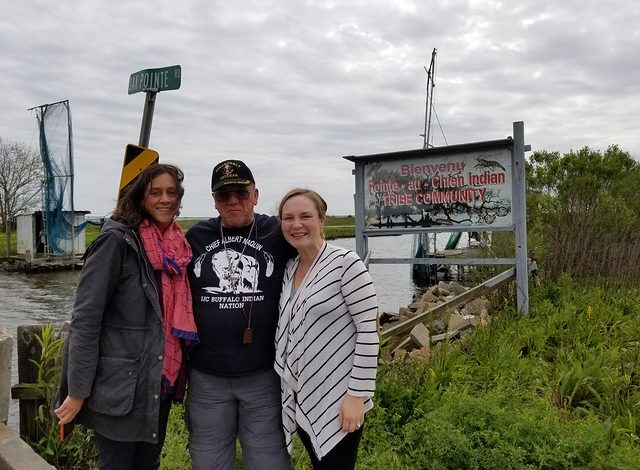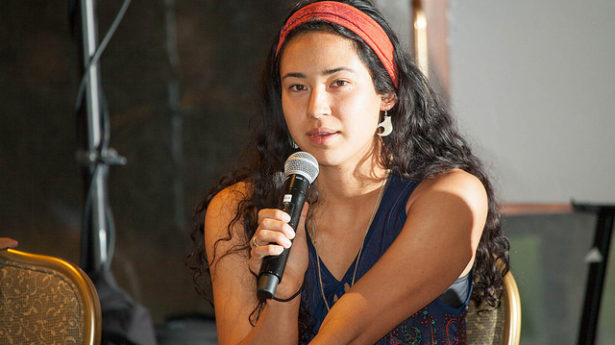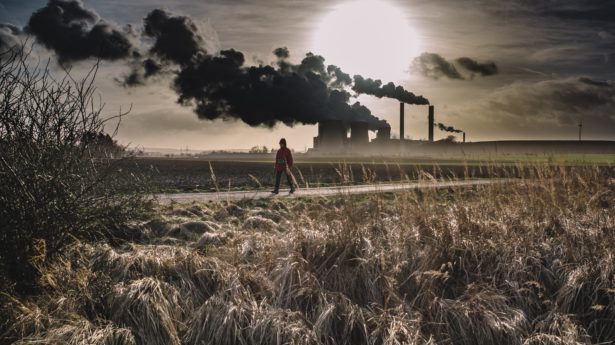The Unitarian Universalist Service Committee advances human rights through grassroots collaborations.
Learning from Louisiana’s Tribes on the Front Lines of Climate Change

By Salote Soqo on April 16, 2019
In early March 2019, UUSC staff travelled to Southeast Louisiana to meet with our partners in the region. Our visit’s purpose: to learn more from frontline coastal and inland communities about the environmental and climate change impacts that are affecting their homes and way of life.
We had the honor of meeting with leaders from three tribes — Isle de Jean Charles, Grand Caillou, and Pointe-au-Chien. These tribes share a common ancestry from the Biloxi-Chitimacha-Choctaw Nation whose homes spanned through the Alabama-Mississippi border, and whose ancestors found their way to the bayous of Louisiana.
These tribes face a myriad of issues — including damages caused by the increasing frequency and intensity of hurricanes in the Gulf, the massive flooding of lands surrounding their homes due to channels dug up by the oil and gas industry, rising sea levels, land and water toxicity, the aftermath of the BP oil spill in 2010, and the threats of ill-conceived infrastructure developments in neighboring areas that are further causing the displacement of families.
These issues affect the safety and livelihoods of the people in their communities. In 2012, Isle de Jean Charles was battered by Hurricane Isaac, which led tribal leadership to take concrete actions to resettle their community members. While other tribes are not at a point to move yet, they recognize it is inevitable.
One of the most important lessons we learned — despite all these hardships, the people of this region are resilient and powerful agents of change. Like many Tribal Nations across the country, they value the experiences and wisdom of their ancestors, who believe in the spiritual connection between their people and the land. This inherent bond between Indigenous Peoples and Mother Earth requires a holistic approach in efforts to address our climate crisis.
UUSC is proud to have our work informed by these communities. Our programs ensure we support and advance First and Indigenous Peoples in their own decision-making and self-determination as they address the challenges of climate-forced displacement — whether that involves building protections in place, resettling their communities, or fighting against capitalist developments that threaten their survival.
Photo Credit: UUSC

